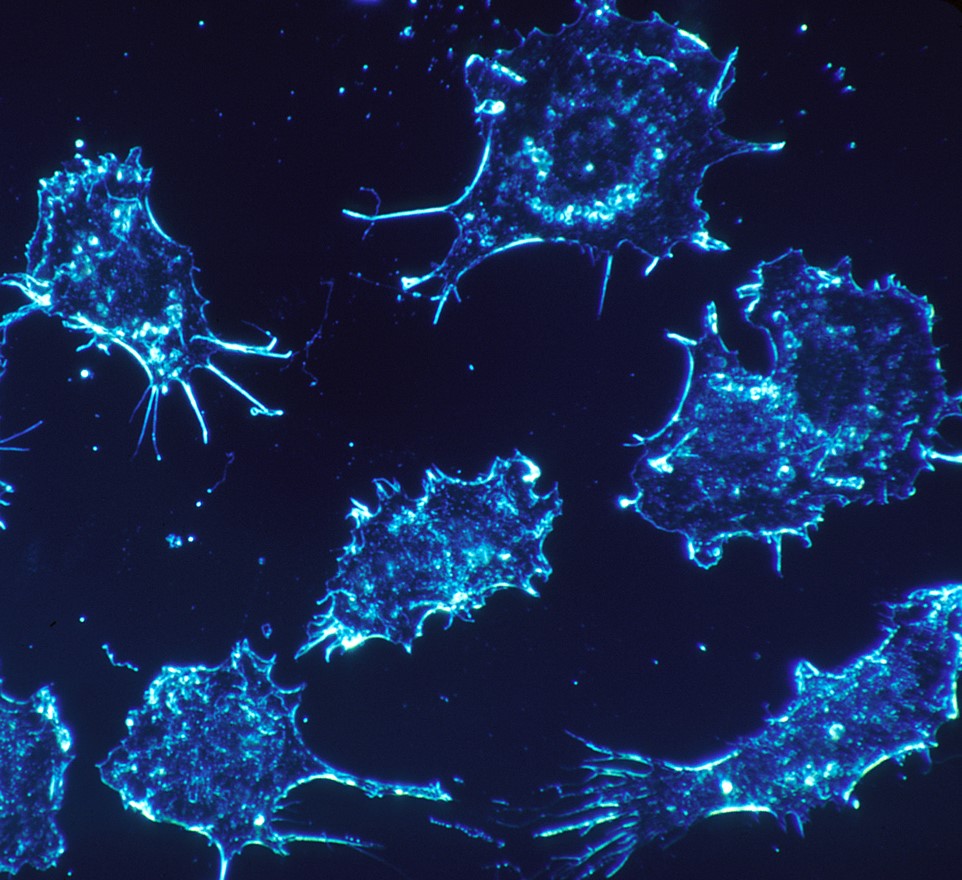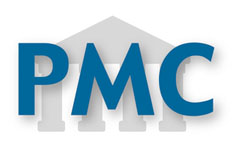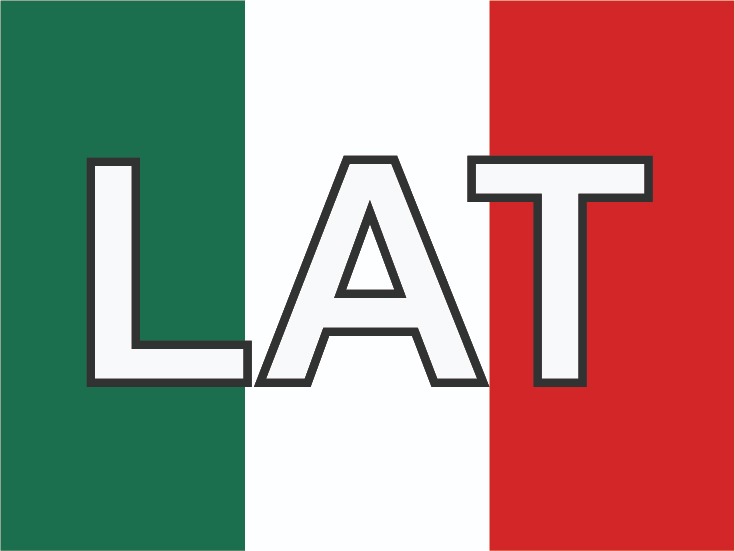Role of heat-shock proteins in infection of human adenocarcinoma cell line MCF-7 by tumor-adapted rotavirus isolates
Abstract
Background:Viruses are being used as alternative and complementary tools for treating cancers. Oncolytic viruses exhibit tumor tropism, ability to enhance anti-tumor immunity and ability to be used in combination with conventional chemotherapy and radiotherapy. We have recently selected some rotavirus isolates which are adapted to efficiently infect and kill tumor cell lines.
Aim:We tested five tumor cell-adapted rotavirus isolates for their ability to infect the human adenocarcinoma cell line MCF-7.
Methods:Cell surface membrane-associated proteins mediating virus particle attachment were characterized using ELISA, immunoprecipitation, FACS analysis, and antibody blocking.
Results:It was found that heat shock proteins (HSPs) such as Hsp90, Hsp70, Hsp60, and Hsp40 are expressed on the cell surface forming complexes with protein disulfide isomerase (PDI), integrin β3, and heat shock cognate protein 70 (Hsc70) in lipid raft microdomains. Interaction of rotavirus isolates with these cellular proteins was further confirmed by a competition assay and an inhibition assay involving the HSPs tested.
Conclusion:Our findings suggest that the tumor cell-adapted rotavirus isolates studied here offer a promising tool for killing tumor cells, thus encouraging further research into this topic, including animal models.
Authors
Downloads
Keywords
- Oncolytic Viruses
- Oncolytic Virotherapy
- Rotavirus
- Cancer Vaccines
- MCF-7 Cells
- Protein Disulfide-Isomerases
- Proto-Oncogene Proteins c-akt
- Heat-Shock Proteins
- Rotavirus Infections
- Integrins
- Pyroptosis
- Autophagic Cell Death
References
Dock G. The influence of complicating diseases upon leukaemia. Am J Med Sci 1904; 127: 1827-1924 https://doi.org/10.1097/00000441-190412740-00001
Dock G. Rabies virus vaccination in a patient with cervical carcinoma. Am J Med Sci 1904; 127: 563 https://doi.org/10.1097/00000441-190412740-00001
Schirrmacher V. From chemotherapy to biological therapy: A review of novel concepts to reduce the side effects of systemic cancer treatment (Review). Int J Oncol 2019; 54: 407-419. https://doi.org/10.3892/ijo.2018.4661
Pol GJ, Levesque S, Workenhe ST, Gujar S, Boeuf FL, Clements DR, et al. Trial Watch: Oncolytic viro-immunotherapy of hematologic and solid tumors. Oncoimmunology 2018; 7: e1503032. https://doi.org/10.1080/2162402X.2018.1503032
Meyers DE, Thakur S, Thirukkumaran CM, Morris DG. Oncolytic virotherapy as an immunotherapeutic strategy for multiple myeloma. Blood Cancer J 2017; 7: 640. https://doi.org/10.1038/s41408-017-0020-0
Marelli G, Howells A, Lemoine NR, Wang Y. Oncolytic Viral Therapy and the Immune System: A Double-Edged Sword Against Cancer. Front Immunol 2018; 9: 866. https://doi.org/10.3389/fimmu.2018.00866
Ekblad M, Hallden G. Adenovirus-based therapy for prostate cancer. Curr Opin Mol Ther 2010; 12: 421-431 PMID: 20677093
Matthews KS, Alvarez RD, Curiel DT. Advancements in adenoviral based virotherapy for ovarian cancer. Adv Drug Deliv Rev 2009; 61: 836-841. https://doi.org/10.1016/j.addr.2009.04.012
Zhang YF, Zhang BC, Zhang AR, Wu T-T, Liu J, Yu L-F, et al. Co-transduction of ribosomal protein L23 enhances the therapeutic efficacy of adenoviral-mediated p53 gene transfer in human gastric cancer. Oncol Rep 2013; 30: 1989-1995. https://doi.org/10.3892/or.2013.2663
Fu YJ, Du J, Yang RJ, Yin LT, Liang AH. Potential adenovirus-mediated gene therapy of glioma cancer. Biotechnol Lett 2010; 32: 11-18. https://doi.org/10.1007/s10529-009-0132-0
Lundstrom K. New frontiers in oncolytic viruses: optimizing and selecting for virus strains with improved efficacy. Biologics 2018; 12: 43-60. https://doi.org/10.2147/BTT.S140114
Ranki T, Pesonen S, Hemminki A, et al. Phase I study with ONCOS-102 for the treatment of solid tumors - an evaluation of clinical response and exploratory analyses of immune markers. J Immunother cancer 2016; 4: 17 https://doi.org/10.1186/s40425-016-0121-5
Markert JM, Razdan SN, Kuo HC, Cantor A, Knoll A, Karrasch M, et al. A phase 1 trial of oncolytic HSV-1, G207, given in combination with radiation for recurrent GBM demonstrates safety and radiographic responses. Mol Ther 2014; 22: 1048-1055. https://doi.org/10.1038/mt.2014.22
Filley AC, Dey M. Immune System, Friend or Foe of Oncolytic Virotherapy? Front Oncol 2017; 7: 106. https://doi.org/10.3389/fonc.2017.00106
Singh PK, Doley J, Kumar GR, Sahoo AP, Tiwari AK. Oncolytic viruses & their specific targeting to tumour cells. Indian J Med Res 2012; 136: 571-584. PMID: 23168697
Howells A, Marelli G, Lemoine NR, Wang Y. Oncolytic Viruses-Interaction of Virus and Tumor Cells in the Battle to Eliminate Cancer. Front Oncol 2017; 7: 195. https://doi.org/10.3389/fonc.2017.00195
Fountzilas C, Patel S, Mahalingam D. Review: Oncolytic virotherapy, updates and future directions. Oncotarget 2017; 8: 102617-102639. https://doi.org/10.18632/oncotarget.18309
Lawler SE, Speranza MC, Cho CF, Chiocca EA. Oncolytic Viruses in Cancer Treatment: A Review. JAMA Oncol 2017; 3: 841-849. https://doi.org/10.1001/jamaoncol.2016.2064
Fukuhara H, Ino Y, Todo T. Oncolytic virus therapy: A new era of cancer treatment at dawn. Cancer Sci 2016; 107: 1373-1379. https://doi.org/10.1111/cas.13027
Hariharan S, Subramanian S, Pooja C, Renukadevi G, Hashik M. Heat shock proteins-a mini review. Int J 2014; 01: 65-73
Kim MY, Oglesbee M. Virus-heat shock protein interaction and a novel axis for innate antiviral immunity. Cells 2012; 1(3): 646-666. https://doi.org/10.3390/cells1030646
Ciocca DR, Calderwood SK. Heat shock proteins in cancer: diagnostic, prognostic, predictive, and treatment implications. Cell Stress Chaperones 2005; 10: 86-103. https://doi.org/10.1379/CSC-99r.1
Calderwood SK, Gong J. Heat Shock Proteins Promote Cancer: It's a Protection Racket. Trends Biochem Sci 2016; 41: 311-323. https://doi.org/10.1016/j.tibs.2016.01.003
Dutta D, Bagchi P, Chatterjee A, Nayak MK, Mukherjee A, Chattopadhyay S, et al. The molecular chaperone heat shock protein-90 positively regulates rotavirus infectionx. Virology 2009; 391: 325-333. https://doi.org/10.1016/j.virol.2009.06.044
Guerrero CA, Bouyssounade D, Zarate S, Isa P, López T, Espinosa R, et al. Heat shock cognate protein 70 is involved in rotavirus cell entry. J Virol 2002; 76: 4096-4102. https://doi.org/10.1128/JVI.76.8.4096-4102.2002
Perez-Vargas J, Romero P, Lopez S, Arias CF. The peptide-binding and ATPase domains of recombinant hsc70 are required to interact with rotavirus and reduce its infectivity. J Virol 2006; 80: 3322-3331. https://doi.org/10.1128/JVI.80.7.3322-3331.2006
Calderon MN, Guerrero CA, Acosta O, Lopez S, Arias CF. Inhibiting rotavirus infection by membrane-impermeant thiol/disulfide exchange blockers and antibodies against protein disulfide isomerase. Intervirology 2012; 55: 451-464. https://doi.org/10.1159/000335262
Guerrero CA, Mendez E, Zarate S, Isa P, Lopez S, Arias CF. Integrin alpha(v)beta(3) mediates rotavirus cell entry. Proc Natl Acad Sci U S A 2000; 97: 14644-14649. https://doi.org/10.1073/pnas.250299897
Londrigan SL, Hewish MJ, Thomson MJ, Sanders GM, Mustafa H, Coulson BS. Growth of rotaviruses in continuous human and monkey cell lines that vary in their expression of integrins. J Gen Virol 2000; 81: 2203-2213. https://doi.org/10.1099/0022-1317-81-9-2203
Abdelhakim AH, Salgado EN, Fu X, Pasham M, Nicastro D, Kirchhausen T, et al. Structural correlates of rotavirus cell entry. PLoS Pathog 2014; 10: e1004355. https://doi.org/10.1371/journal.ppat.1004355
Guerrero CA, Guerrero RA, Silva E, Acosta O, Barreto E. Experimental Adaptation of Rotaviruses to Tumor Cell Lines. PLoS One 2016; 11: e0147666. https://doi.org/10.1371/journal.pone.0147666
Gualtero DF, Guzmán F, Acosta O, Guerrero CA. Amino acid domains 280-297 of VP6 and 531-554 of VP4 are implicated in heat shock cognate protein hsc70-mediated rotavirus infection. Arch Virol 2007; 152: 2183-2196. https://doi.org/10.1007/s00705-007-1055-5
Kao CY, Yang P-M, Wu MH, Huang CC, Lee YC, Lee KH. Heat shock protein 90 is involved in the regulation of HMGA2-driven growth and epithelial-to-mesenchymal transition of colorectal cancer cells. PeerJ. 2016; 4: e1683. https://doi.org/10.7717/peerj.1683
Yang R, Tang Q, Miao F, An Y, Li M, Han Y, et al. Inhibition of heat-shock protein 90 sensitizes liver cancer stem-like cells to magnetic hyperthermia and enhances anti-tumor effect on hepatocellular carcinoma-burdened nude mice. Int J Nanomedicine 2015; 10: 7345-7358. https://doi.org/10.2147/IJN.S93758
Gadelle D, Bocs C, Graille M, Forterre P. Inhibition of archaeal growth and DNA topoisomerase VI activities by the Hsp90 inhibitor radicicol. Nucleic Acids Res 2005; 33: 2310-2317. https://doi.org/10.1093/nar/gki526
Schlecht R, Scholz SR, Dahmen H, Wegener A, Sirrenberg C, Musil D, et al. Functional analysis of Hsp70 inhibitors. PLoS One 2013; 8: e78443. https://doi.org/10.1371/journal.pone.0078443
Rong Y, Yang EB, Zhang K, Mack P. Quercetin-induced apoptosis in the monoblastoid cell line U937 in vitro and the regulation of heat shock proteins expression. Anticancer Res 2000; 20: 4339-4345. PMID: 11205268
Santana AY, Guerrero CA, Acosta O. Implication of Hsc70, PDI and integrin αvβ3 involvement during entry of the murine rotavirus ECwt into small-intestinal villi of suckling mice. Arch Virol 2013; 158: 1323-1336. https://doi.org/10.1007/s00705-013-1626-6
Guerrero CA, Moreno LP. Rotavirus receptor proteins Hsc70 and integrin αvβ3 are located in the lipid microdomains of animal intestinal cells. Acta Virol 2012; 56: 63-70. PMID: 22404611. https://doi.org/10.4149/av_2012_01_63
Elia G, Santoro MG. Regulation of heat shock protein synthesis by quercetin in human erythroleukaemia cells. Biochem J 1994; 300: 201-209. https://doi.org/10.1042/bj3000201
Aghi M, Martuza RL. Oncolytic viral therapies - the clinical experience. Oncogene 2005; 24: 7802-7816. https://doi.org/10.1038/sj.onc.1209037
Guerrero CA, and Acosta O. Inflammatory and oxidative stress in rotavirus infection. World J Virol 2016 5(2): 38-62. Published online 2016 May 12. https://doi.org/10.5501/wjv.v5.i2.38

Copyright (c) 2021 Universidad del Valle

This work is licensed under a Creative Commons Attribution-NonCommercial 4.0 International License.
The copy rights of the articles published in Colombia Médica belong to the Universidad del Valle. The contents of the articles that appear in the Journal are exclusively the responsibility of the authors and do not necessarily reflect the opinions of the Editorial Committee of the Journal. It is allowed to reproduce the material published in Colombia Médica without prior authorization for non-commercial use

 https://orcid.org/0000-0001-8206-6174
https://orcid.org/0000-0001-8206-6174



















